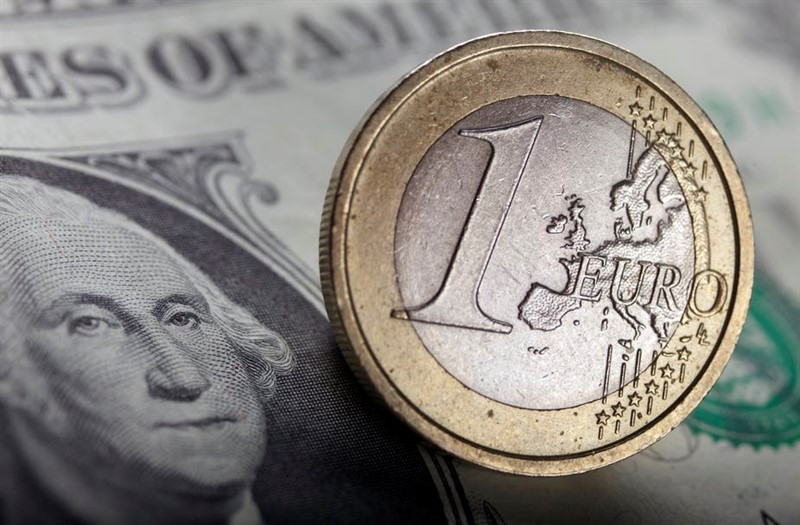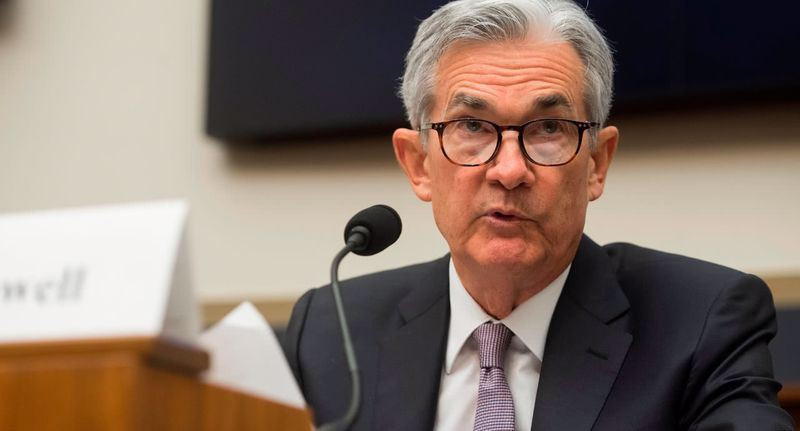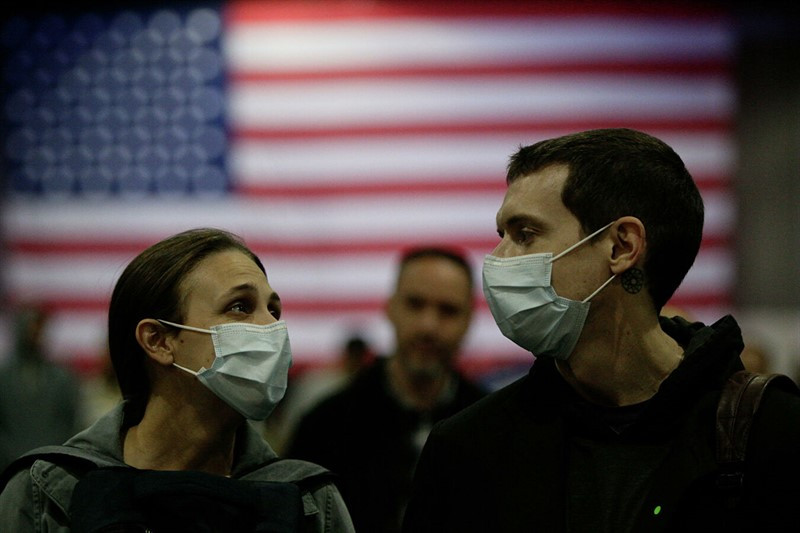
On Wednesday, the US currency is hovering near its 16-month highs, with USDX trading above the 50-day and 200-day MA lines. The prevalent trend remains bullish despite the weekly RSI being in overbought territory, signalling a possible pullback.
A breakout above the 96.60 level would allow the price to rise towards 97.00, followed by 97.80.
The current support level for the dollar is 95.50. If the index breaks out below 95.50, the next support levels would be 94.90 and 94.50.
The euro has found short term technical support in the $1.1240-$1.1180 range, which were the highs of October-December 2019, Commerzbank analysts note. If the euro breaks below that area, it would likely fall to $1.1000, which is the 78.6% retracement of 2020's move, they said.
Some analysts view the renomination of Jerome Powell as Fed chairman by US President Biden as giving him a go-ahead for tightening monetary policy - rapidly winding down of the asset purchase program before an interest rate hike.
Traders eye the November FOMC meeting minutes, which are due later today. The minutes could provide hints of future Fed actions, such as the timeline of raising interest rates and possibly accelerating QE tapering.
The Federal Reserve expected US economic activity and employment to rise further during its announcement of QE tapering in early November. Furthermore, the Fed admitted that the price pressure was stronger and more persistent than previously anticipated, but remained confident that inflation would be transitory.
Recent data indicates US business activity slowed down moderately in November amid labor shortages and raw material delays, contributing to rising prices halfway through the fourth quarter.
The core PCE price index used by the Fed to gauge inflation is projected to stay above 4% in the current and the next quarter.

"The whiff of stagflation is getting stronger as shortages worsen, leading to surging prices and weaker real GDP growth. Shortages of goods and intermediate inputs will eventually ease, although not for at least six to 12 months," commented Paul Ashworth, chief North America economist at Capital Economics.
He added that the drop in the labor force appears to be more permanent, which suggests the pandemic could be detrimental for potential GDP in the long term.
Economists polled by Reuters in November expect US economic growth to slow down to 2% in the third quarter and rise by 4.8% in the fourth quarter, compared to 3.8% and 5% respectively in October.
The yield of 10-year US treasury notes has been mixed recently, indicating anxiety among investors.
Traders remain cautious, shifting between two contradicting scenarios - inflation leading to monetary tightening or an economic slowdown affirming the Federal Reserve's wait-and-see tactic.
Growing expectations of Fed policy are likely to be irrelevant if the long end of the bond yield curve remains the same as before, Saxo Bank strategists note. The market is expecting inflation to be transitory, and the potential Fed interest rate is likely not to exceed 2.0%.
The Federal Reserve chairman Jerome Powell stated that supply chain issues are likely to persist in 2022, while inflation should decline by the second or third quarter of 2022. Powell noted that officials can be patient on raising interest rates. The Fed is observing the economic situation and would adjust its policy accordingly, the chairman said.

According to Tokai Tokyo Research Institute analysts, the Federal Reserve's caution on hiking the interest rates means the dollar is unlikely to grow continuously,
Despite a strengthening of the dollar across the board, it has not led to a rise in USD net positioning as reported by the Commodity Futures Trading Commission.
Hedge funds are becoming less and less bullish on the dollar amid speculation the US currency has risen too much, while the Fed does not rush to raise interest rates. According to CFTC data cited by Bloomberg, leveraged funds trimmed their net long positions for a third straight week in the period through November 16, having cut back their bullish bets by more than a quarter over that period.
The worsening coronavirus situation in the EU continues to benefit the US dollar as a protective asset. Renewed lockdown restrictions put European economic prospects into question, making investors dump the euro.
The European currency found some support in strong PMI data. The manufacturing and service PMI beat expectations, but failed to significantly influence EUR/USD.
"The flash PMI's for November surprised to the upside in the euro zone, France and Germany. However, with cases rising sharply in some euro zone countries, the near-term outlook is quickly turning more pessimistic as risks of another dangerous wave of coronavirus ramp up. A deterioration in sentiment in December is likely" noted Rory Fennessy at Oxford Economics.
With the fundamentals not supporting the euro, the downward movement would be the path of least resistance for the currency.
The renomination of Jerome Powell would eliminate a bearish tactical risk for the US dollar, JPMorgan analysts say. The US currency is forecasted to rise against the euro by the end of 2022. With the Fed continuing its interest rate hike cycle, JPMorgan's outlook recommended maintaining long positions in the US dollar against low-yielding currencies.
Some experts predict that an upsurge in COVID-19 cases could begin in the US as well.

Vaccination rates in Austria and Germany are at 64% and 69% respectively, beating the US with its 58% rate, Deutsche Bank analysts commented. It is unclear whether the US would be more vulnerable during the winter than many European countries or not.
Barclays strategists expect other regulators to hike the interest rates following the Federal Reserve.
According to the outlook by Barclays, EUR/USD could modestly appreciate, driven by relative monetary policy expectations. The pair is forecasted to reach 1.1500 in the fourth quarter of 2021, 1.1600 in the first quarter of 2022, 1.1800 in the second quarter, 1.1900 in the third and fourth quarter.
On Wednesday, the euro fell by 0.3% to $1.1205, reaching the low of July 2020. The currency was pushed down by weak German business climate data.
IFO's business climate index decreased to 96.5 points in November, compared to 97.7 points in October.
Declining business expectations amid stricter COVID-19 restrictions could push the euro down even further, with a test of 1.2000-1.1190 levels possible, an outlook by CIBC said.
In the meantime, USDX has lifted to a 16-month high, surpassing the 96.70 mark, as the market eyes the FOMC meeting minutes.
Market players would find it interesting to gauge the difference between hawks and doves, although the FOMC minutes would be somewhat outdated, ING analysts noted. Soaring inflation indicated in data released after the November meeting has clearly provided a strong argument in favor of faster QE tapering and earlier monetary tightening.
 English
English 
 Русский
Русский Bahasa Indonesia
Bahasa Indonesia Bahasa Malay
Bahasa Malay ไทย
ไทย Español
Español Deutsch
Deutsch Български
Български Français
Français Tiếng Việt
Tiếng Việt 中文
中文 বাংলা
বাংলা हिन्दी
हिन्दी Čeština
Čeština Українська
Українська Română
Română

